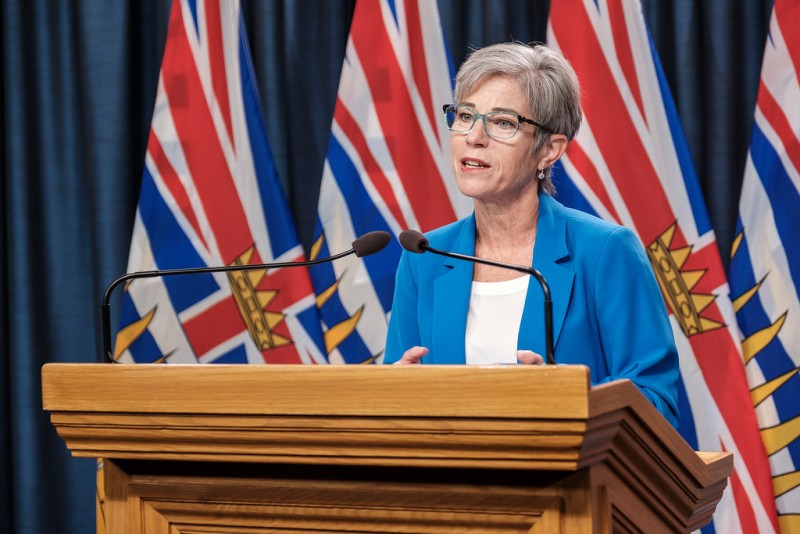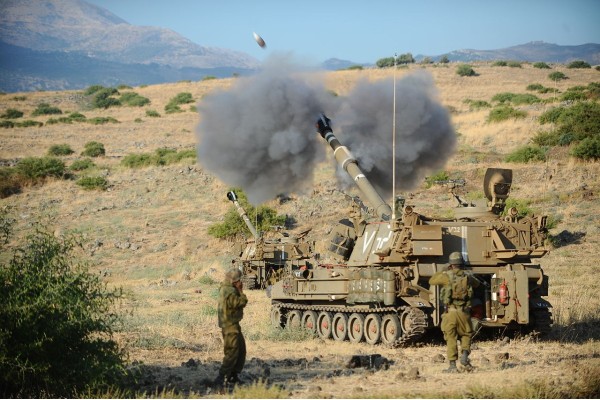Selina Robinson didn’t just abuse her position—she abused the legacy of the Holocaust
Humanity can and must do better—not just for Jews, but for all people

BC NDP MLA Selina Robinson. Photo courtesy Province of British Columbia/Flickr.
“They don’t understand that it was a crappy piece of land with nothing on it. You know, there were several hundred thousand people but other than that, it didn’t produce an economy. It couldn’t grow things, it didn’t have anything on it.”
You’ve probably heard BC NDP MLA Selina Robinson’s colonialist diatribe—an attempt to describe Palestine before 1948—by now.
But you may not have heard the full context, which is as problematic as the content: she said these words while trying to explain that the majority of “18-34 year-old people”—effectively, “kids these days”—are Holocaust deniers. Her contention was that if young people knew the history of the Holocaust, they, too, would grant Israel full impunity for its assault on Gaza, which the International Court of Justice has now ruled is plausibly genocide.
As a Jew who was in that age category on October 7, I can assure Robinson: we know about the Holocaust. We know about the horrors of ethno-nationalism and fascism. We know about genocide.
But it seems that we’ve drawn different lessons from that knowledge than she has.
I spent the last few months organizing against Israel’s ongoing violence with a group of Jews in Vancouver, largely through the organization Independent Jewish Voices. Our rallying cry—and that of Jews and Jewish organizations fighting for Palestinian lives around the world—is one that centres our collective memory of the Holocaust, not one that denies it.
It is a cry issued by Jewish Holocaust survivors and peace activists who recognized years ago what the state of Israel was doing in Palestine. It is a cry that seeks to universalize the lessons of the Holocaust rather than narrow them. It is a cry based on the unflinching belief that humanity can and must do better—not just for Jews, but for all people.
It is the insistence that never again means for anyone.
What was done to our relatives, our families, and our culture must not be allowed to happen again. But it would be disrespectful to the memory of all those lost to suggest that edict be limited to Jews: it must not happen again to anyone. Our people’s history of oppression isn’t a license to oppress, it’s a call to dedicate our lives to creating a world without oppression.
Robinson’s remarks were uniquely callous for a legislator who claims to represent a “progressive” party, but her rhetoric and her actions are part of a much broader campaign that weaponizes both antisemitism and the legacy of the Holocaust itself against those who would criticize Israel.
Gaza was first called an “open-air prison” by British politician David Cameron—far from a radical—in 2010, three years after the Israeli blockade took the form it still retains today. That has become a fairly common term in the years since, particularly among human rights organizations, but as the Jewish author Masha Gessen argued in the New Yorker in December, “prison” doesn’t quite capture the reality of Gaza, and it certainly doesn’t capture the violence of the last four months. A word from the horror in our collective memory does, though: ghetto. Gessen summed up what we are seeing now simply: “The ghetto is being liquidated.”
For writing these lines, Gessen was disinvited from an event where they were in line to receive the Hannah Arendt Prize for Political Thought. The Heinrich Böll Foundation, the award’s funders, chose to weaponize antisemitism and the legacy of the Holocaust—like Robinson—against a Jewish person descended from Holocaust survivors; a person who was trying to make the point that “to deliver on the promise of ‘Never Again,’ we have to constantly be checking to see if we are once again sliding into the darkness.”
Never again means for anyone.
Gessen’s well-argued comparison is crucially important, and becomes more and more indisputable by the day as Israeli horrors are documented by journalists in Palestine, Israel, and abroad (see, for example, the Israeli newspaper Haaretz’s recent reporting on the IDF-run Telegram channel “72 Virgins–Uncensored,” which is filled with dehumanizing videos of Israeli soldiers abusing the bodies of murdered Palestinians).
But Gessen’s blacklisting also demonstrates the danger that people like Robinson—along with lobby groups like the Centre for Israel and Jewish Affairs (CIJA), which rushed to Robinson’s defense following her removal from cabinet—pose. They are distorting the legacy of the Holocaust in an attempt to justify ongoing crimes that are far beyond the limits of what can be justified.
If there is an issue with our Holocaust education, it is not that it fails to convince young people that the Holocaust happened, but that it fails to teach about the conditions that led to the Holocaust, instead exceptionalizing it as a unique event, withdrawn from the realities of history. This exceptionalization both entrenches the differentiation of Jews as unique victims—ironically, a kind of antisemitism—and obscures the very warning signs that would allow us to stop another Holocaust before it’s too late.
Robinson’s removal from cabinet was a starting point for BC’s government. But it cannot be the endpoint: the lessons of the Holocaust demand not that we give Israel a blank check to commit genocide, but that we do everything we can to oppose its genocidal actions.
Nick Gottlieb is a climate writer based in northern BC and the author of the newsletter Sacred Headwaters. His work focuses on understanding the power dynamics driving today’s interrelated crises and exploring how they can be overcome. Follow him on Twitter @ngottliebphoto.










_600_400_90_s_c1.jpg)